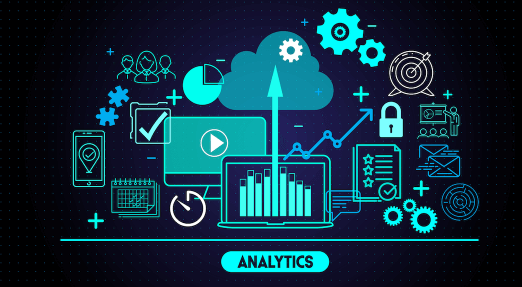How are advancements in machine learning algorithms enhancing predictive analytics in sectors like finance and healthcare?

Introduction
In recent years, the rapid advancements in machine learning (ML) algorithms have significantly transformed various industries, particularly finance and healthcare. Predictive analytics, powered by these advanced algorithms, is enabling organizations to forecast future events, identify potential risks, and make data-driven decisions with unprecedented accuracy. This article explores how these advancements are enhancing predictive analytics in finance and healthcare, highlighting the benefits, challenges, and future prospects.
The Role of Machine Learning in Predictive Analytics
Machine learning plays a pivotal role in predictive analytics by automating the process of extracting patterns from large datasets. Traditional statistical methods have limitations in handling the complexity and volume of modern data, but ML algorithms excel in this domain. By learning from historical data, these algorithms can predict future trends and outcomes, providing valuable insights for various applications.
Key Machine Learning Algorithms in Predictive Analytics
Several ML algorithms are particularly effective in predictive analytics, including:
- Linear Regression: Useful for predicting continuous variables.
- Logistic Regression: Ideal for binary classification problems.
- Decision Trees: Simplifies complex decision-making processes.
- Random Forests: Enhances prediction accuracy by combining multiple decision trees.
- Support Vector Machines (SVM): Effective for classification and regression tasks.
- Neural Networks: Capable of modeling intricate relationships in data.
Advancements in ML Algorithms
Recent advancements in ML algorithms have greatly improved the accuracy and efficiency of predictive analytics. Innovations such as deep learning, reinforcement learning, and ensemble methods have expanded the capabilities of predictive models. These advancements enable the handling of unstructured data, real-time processing, and improved interpretability of models.
Predictive Analytics in Finance
The finance sector heavily relies on predictive analytics for risk management, fraud detection, and investment strategies. ML algorithms help financial institutions analyze market trends, forecast stock prices, and detect fraudulent activities by identifying anomalous patterns in transaction data. This enhances decision-making and ensures regulatory compliance.
Risk Management
ML algorithms enhance risk management by predicting potential financial losses and identifying high-risk investments. By analyzing historical data and market trends, these algorithms provide insights into the likelihood of default, enabling financial institutions to mitigate risks effectively.
Fraud Detection
Fraud detection is a critical application of predictive analytics in finance. ML algorithms analyze transaction data in real-time to identify suspicious activities. By learning from past fraud cases, these models can detect anomalies and flag potential fraud, protecting both institutions and customers.
Investment Strategies
Predictive analytics aids in developing robust investment strategies by forecasting market trends and asset performance. ML algorithms analyze vast amounts of financial data, helping investors make informed decisions and optimize their portfolios for better returns.
Predictive Analytics in Healthcare
In healthcare, predictive analytics is revolutionizing patient care, disease prevention, and operational efficiency. ML algorithms analyze medical records, genetic data, and lifestyle information to predict disease outbreaks, patient outcomes, and treatment effectiveness.
Disease Prediction and Prevention
ML algorithms play a crucial role in predicting disease outbreaks and identifying high-risk patients. By analyzing historical health data and environmental factors, these models can forecast the spread of diseases, enabling proactive measures for prevention and control.
Patient Outcomes
Predictive analytics helps healthcare providers anticipate patient outcomes and tailor treatments accordingly. By analyzing patient data, including medical history and treatment responses, ML algorithms can predict recovery times, potential complications, and the effectiveness of different treatment options.
Operational Efficiency
Healthcare facilities use predictive analytics to optimize operations, such as staffing, resource allocation, and supply chain management. ML algorithms analyze patient flow, appointment schedules, and inventory levels to improve efficiency and reduce costs.
Challenges in Implementing Predictive Analytics
Despite its benefits, implementing predictive analytics in finance and healthcare presents challenges. Data privacy concerns, the need for high-quality data, and the complexity of integrating ML models into existing systems are significant hurdles. Additionally, the interpretability of ML models is crucial for gaining trust and regulatory approval in these sectors.
Future Prospects of Predictive Analytics
The future of predictive analytics looks promising with continuous advancements in ML algorithms. Enhanced computational power, access to big data, and interdisciplinary collaboration will further refine predictive models. In finance, we can expect more sophisticated risk management tools and fraud detection systems. In healthcare, predictive analytics will drive personalized medicine, early disease detection, and improved patient care.
FAQs
How do machine learning algorithms improve predictive analytics?
Machine learning algorithms enhance predictive analytics by automating data analysis, identifying patterns, and making accurate predictions. They handle large and complex datasets more efficiently than traditional methods.
What are the benefits of predictive analytics in finance?
Predictive analytics in finance improves risk management, fraud detection, and investment strategies. It helps financial institutions make informed decisions, minimize risks, and optimize returns.







